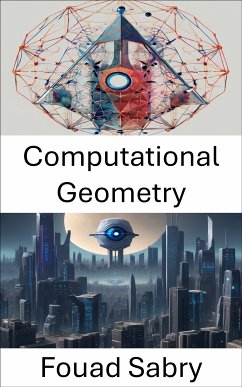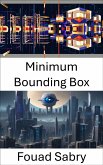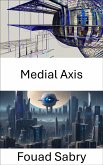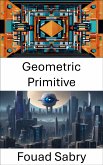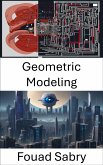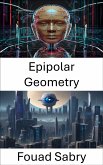What is Computational Geometry
Computational geometry is a branch of computer science devoted to the study of algorithms which can be stated in terms of geometry. Some purely geometrical problems arise out of the study of computational geometric algorithms, and such problems are also considered to be part of computational geometry. While modern computational geometry is a recent development, it is one of the oldest fields of computing with a history stretching back to antiquity.
How you will benefit
(I) Insights, and validations about the following topics:
Chapter 1: Computational geometry
Chapter 2: Delaunay triangulation
Chapter 3: Convex hull
Chapter 4: Voronoi diagram
Chapter 5: Discrete geometry
Chapter 6: Polygon triangulation
Chapter 7: Euclidean minimum spanning tree
Chapter 8: Simple polygon
Chapter 9: Point-set triangulation
Chapter 10: Triangulation (geometry)
(II) Answering the public top questions about computational geometry.
(III) Real world examples for the usage of computational geometry in many fields.
Who this book is for
Professionals, undergraduate and graduate students, enthusiasts, hobbyists, and those who want to go beyond basic knowledge or information for any kind of Computational Geometry.
Computational geometry is a branch of computer science devoted to the study of algorithms which can be stated in terms of geometry. Some purely geometrical problems arise out of the study of computational geometric algorithms, and such problems are also considered to be part of computational geometry. While modern computational geometry is a recent development, it is one of the oldest fields of computing with a history stretching back to antiquity.
How you will benefit
(I) Insights, and validations about the following topics:
Chapter 1: Computational geometry
Chapter 2: Delaunay triangulation
Chapter 3: Convex hull
Chapter 4: Voronoi diagram
Chapter 5: Discrete geometry
Chapter 6: Polygon triangulation
Chapter 7: Euclidean minimum spanning tree
Chapter 8: Simple polygon
Chapter 9: Point-set triangulation
Chapter 10: Triangulation (geometry)
(II) Answering the public top questions about computational geometry.
(III) Real world examples for the usage of computational geometry in many fields.
Who this book is for
Professionals, undergraduate and graduate students, enthusiasts, hobbyists, and those who want to go beyond basic knowledge or information for any kind of Computational Geometry.
